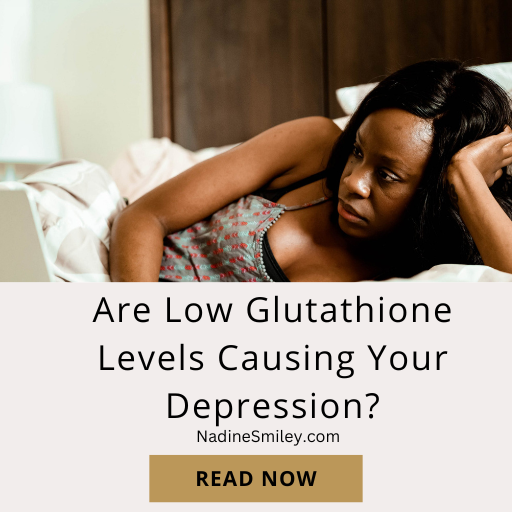When Feeling Down Might Be More About Your Body Than Your Mood
Do you sometimes feel really down, tired, or like your brain is foggy and you can’t think straight? There are times when we can go to our doctors or therapists and will get a diagnosis of depression. Yet, sometimes it’s what’s inside your body that is causing the down feelings? There’s a substance produced in our bodies called glutathione that may be low and causing depressive symptoms.
What is Glutathione?
Imagine glutathione as a miniature cleaner that travels through your body, picking up waste and toxins from your cells, helping to ensure their health. This process is essential because it helps your body stay clean on the inside.
Glutathione and Mood
When there isn’t enough glutathione in the body, your body struggles to clean out the toxins and waste. This can result in symptoms of fatigue, sadness, or inability to think clearly. Doctors may read these symptoms as a diagnosis of depression, when in actuality, it could be the lack of glutathione in your body.
How to Get Glutathione from Your Food
There are foods you can eat to increase your glutathione levels and help your body help itself:
- Eat Your Veggies: Foods like broccoli, kale, and cauliflower are great because they contain Sulfur, which helps make more glutathione.
- Vitamin Buddies: Vitamins C and E help optimize glutathione. Oranges, strawberries, almonds, and spinach are also good choices.
- Go Nuts for Selenium: Selenium is in foods like Brazil nuts and sunflower seeds. These can help build more glutathione in the body.
- Power Up with Protein: Foods that are high in protein are good. They contain something called cysteine, which is basically a building block for glutathione.
- B Vitamins: These are great for making more glutathione. You can find them in beans, peas, and chicken.
In Simple Words
So if you’re finding that you’re feeling down or tired all the time, it might not just be in your mind. It may be as simple as not having enough glutathione in your body. By eating the right foods, you can help increase your glutathione levels and increase your mood and energy levels. If you’re feeling like you may harm yourself or someone else, please reach out to a mental health professional or call emergency services.
Remember the role nutrition plays in your mental wellbeing. Eating well isn’t just about keeping your stomach happy. It’s also about keeping your body and mind healthy!


